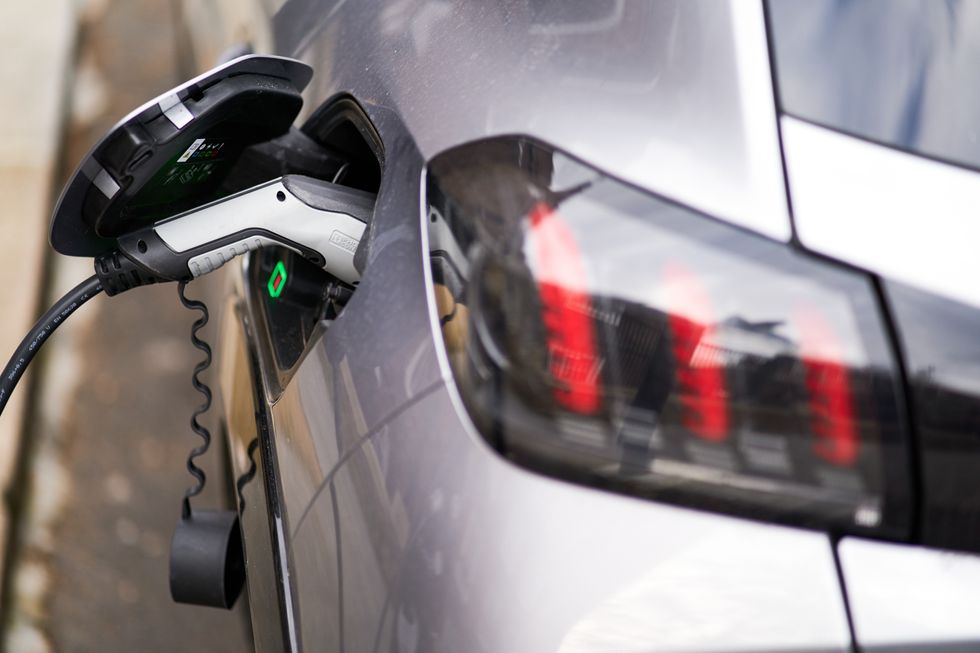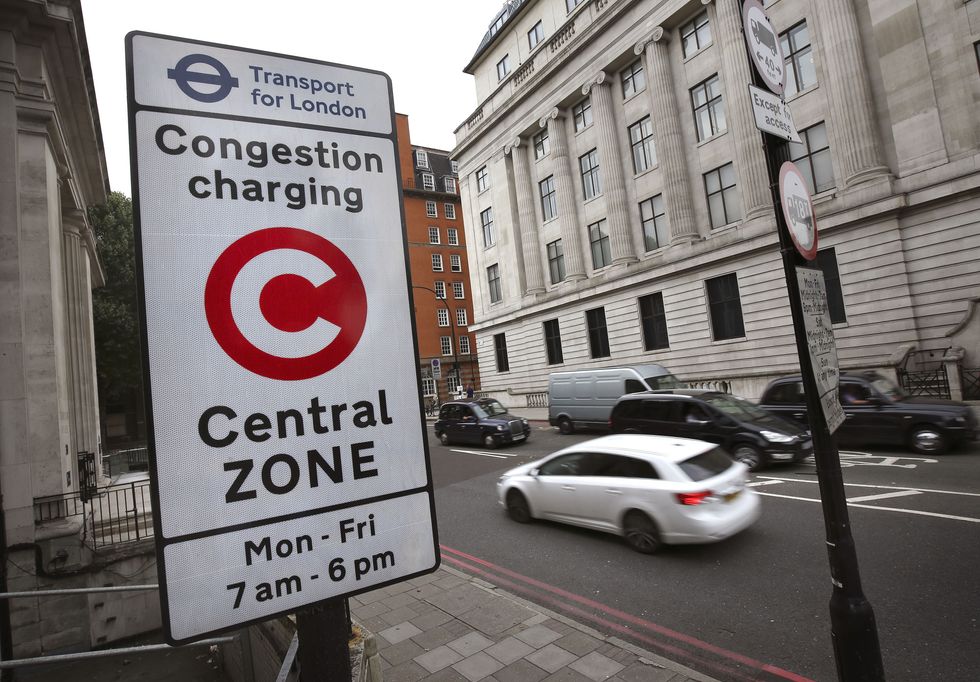



Sadiq Khan's proposed hikes to the Congestion Charge are expected to raise millions in additional revenue over the coming five years, with drivers footing the bill.
A recent Freedom of Information request found that the increase in road charging from £15 to £18 is estimated to bring in between £415million and £455million for Transport for London, with electric car drivers being impacted the most.
The financial windfall will primarily come from removing the current exemption for electric vehicles and raising the daily charge by 20 per cent.
The FOI revealed that ending the electric car exemption alone will generate between £75million and £83million annually.

The Congestion Charge will increase from £15 to £18, with electric cars also being subject to the payment
|PA
These changes mark a significant policy shift that will particularly affect thousands of motorists who have invested in electric vehicles in the capital to help support the Government’s ambitious Zero Emission Vehicle mandate.
The mandate requires all new car sales to be electric by 2035, with at least 28 per cent electric by the end of the year before moving to 100 per cent in the next decade.
As more drivers switch to electric, there has been a decline in tax collections, which has prompted changes to the way road charges operate across London.
As a result, TfL announced that electric cars will lose their longstanding exemption from the Congestion Charge on December 25, 2025. Just one week later, on January 2, 2026, all motorists entering the charging zone will face an increased daily fee.

Electric car owners paying the Congestion Charge is expected to generate between £75million and £83million
| PAThe exemption for battery-powered and hydrogen fuel cell vehicles has been in place since October 2021, when it replaced a broader discount that previously included hybrid vehicles. It was a key incentive alongside Vehicle Excise Duty tax breaks in helping drivers give up petrol and diesel cars.
According to reports, TfL has confirmed that its Congestion Charge income is expected to rise from £240million in the 2024/25 financial year to £320million by 2026/27. The charging zone operates between 7am and 6pm on weekdays and noon to 6pm at weekends and bank holidays.
Once the new rate takes effect next year, motorists who drive into central London five days per week will face annual costs of £4,140 once the new rate takes effect, based on 46 working weeks per year.
However, TfL plans to offer a 25 per cent reduction for electric vehicle owners who register with the Auto Pay system, potentially lowering yearly expenses to £3,105.
This discount would save regular commuters £1,035 annually compared to the full rate, though TfL has indicated the reduction will decrease to 12.5 per cent after five years.
Tom Jervis, consumer editor at Auto Express, urged EV drivers to establish Auto Pay accounts promptly to secure these savings.
"For someone driving into London five days a week, this is a difference of £18.75 over a week, and £862.50 over a year on the current charge of £15 a day," he stated.
The expert has strongly criticised the forthcoming changes, describing them as "deeply concerning" for electric vehicle owners who made their purchases believing they would avoid such charges.

The new Congestion Charges are expected to come into force on January 2 next year
| PA"EV buyers have already lost their exemption from the luxury car tax, and now this," Jervis said, highlighting the pattern of punishing measures for EV owners under the Labour Government.
He argued that the policy shift penalises motorists who invested in electric cars specifically to reduce their environmental impact and avoid Congestion Charges.
Jervis added: "If we're serious about encouraging the uptake of electric vehicles, we need consistent, long-term incentives, not policies that penalise those who've already done the right thing. Electric vehicle owners should be supported, not squeezed."
The EV exemption to the Congestion Charge was a key incentive that formed part of a broader strategy to encourage cleaner transport options in central London, alongside other measures such as the Ulez.
